Reviews
Review: The Witness for the Prosecution
Stuffed with Christmas leftovers and having exhausted all the family board games in the house, there’s no better time than in post-Yuletime bliss to sit in front of a classic Christie drama and lose yourself in a dark and murderous tale of love, lust and justice.
After the overwhelming success of 2015’s And Then There Were None, the expectation was high. Could the BBC deliver another cracker of a Christie?
The Witness For The Prosecution is one of Agatha Christie’s perfectly formed short stories. Having previously been adapted for stage and film, this is the first time it has been re-told on the small screen by writer and Christie-convert Sarah Phelps and gifted a prime spot in the BBC’s Christmas schedule.
An all-star cast leads the two-part drama, with Kim Cattrall, Angela Riseborough, Toby Jones, Hayley Carmichael, Monica Dolan, Billy Howle and David Haig.
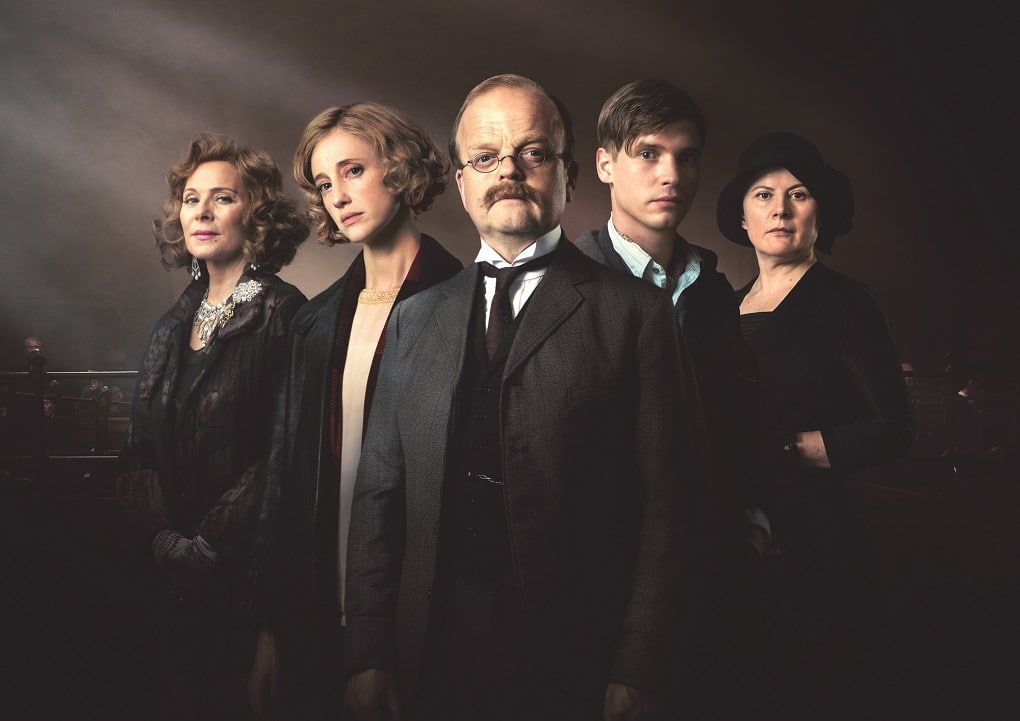
The drama opens on a World War I battlefield. Bombs. Bullets. Blood. A muddied soldier runs for the cover of a war-beaten trench to find a young woman hiding. Both are alone, consumed with fear. This simple, yet epic opening fires the spoils of war into the forefront of the drama and casts a shadow over the story to follow, as it shifts in time to 1920s London.
1923 and war is over. We meet the soldier again, Leonard Vole, who is quickly seduced by a wealthy widow, Emily French, glamorously played by the wonderful Kim Cattrall. French seemingly pulls the strings and Vole is caught in her lustful web, much to the disgust of her outspoken maid Janet McIntyre, played by the characterful Monica Dolan.
The next time we see Janet her hands are covered in blood and she’s hysterical. Emily French has been brutally murdered and Janet thinks she knows who did it. It was Leonard Vole.
What follows is a did-he-do-it story where women are pitted against men and Vole’s life is on the line – if he’s found guilty he’ll be sent to the gallows.
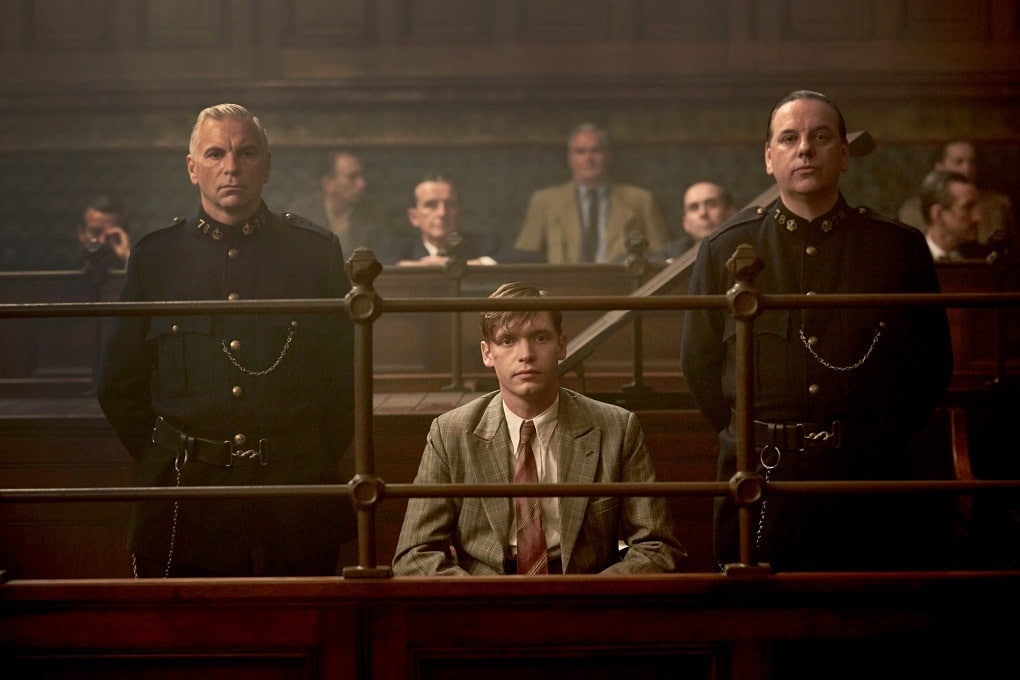
Embroiled in the bitter tale is penniless solicitor John Mayhew, exceptionally characterised by Toby Jones, who is charged with representing Vole. Jones delivers an emotional rawness to his performance, conveying a man as scarred by war as Vole, ripe to be taken advantage of.
The real star of the drama, both in Christie’s storytelling and in her performance, is Andrea Riseborough, as Leonard’s ‘wife’ Romaine Vole. Romaine is the young woman Leonard met in the trench – an image Phelps returns to to open the second part of the drama, as the pair emerge from the trench to face the desolated world together.
Romaine is one of Christie’s richly psychologically complex characters, a survivor and product of the atrocities of the Great War. At first Mayhew believes Romaine is the key to proving Leonard’s innocence, but quickly her loyalties are put to the test when Leonard is revealed as the sole benefactor of Emily French’s substantial will. Money changes everything and viciously Romaine testifies against him.
Riseborough delivers a multi-faceted performance and perfectly balances the dichotomies of Romaine’s character, as we question her truth at every turn and are left guessing about her loyalty and involvement, until the final Christie twist.
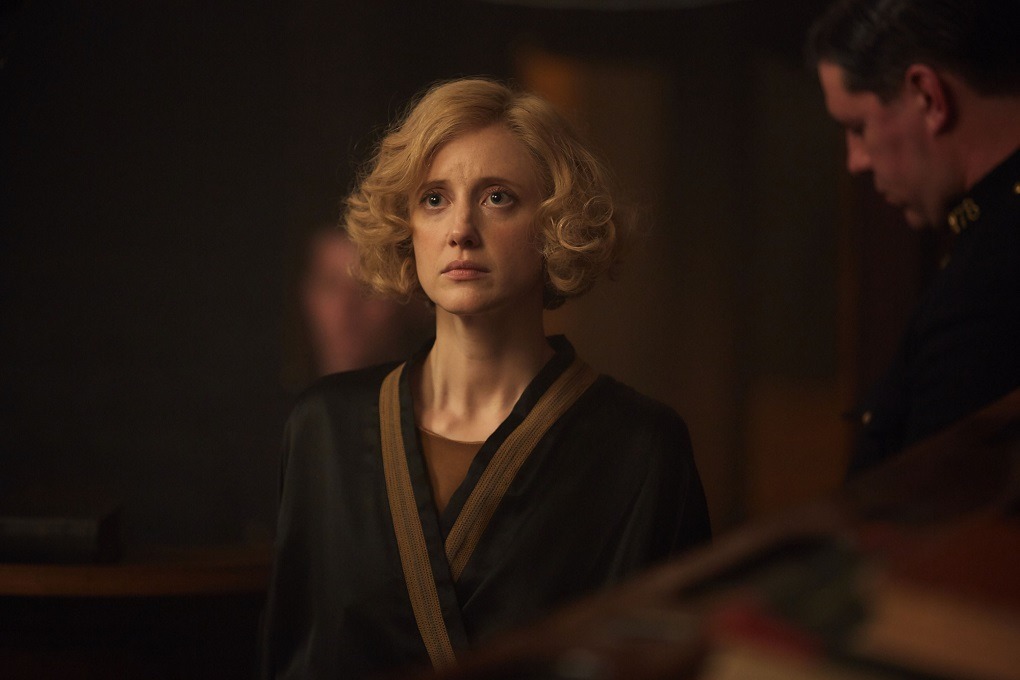
The two-parts grip from beginning to end, with a heavy film noir influence created by a dark and foggy portrayal of London. The period details of the era are exact and the intricate storytelling, playing with memories, flashbacks and multiple perspectives, make for a compelling mystery.
The courtroom climaxes with women at the centre of the manipulations and distrusted by the prosecution. Toby Jones’ Mayhew has a renewed energy about him, as Romaine is disproved as a credible witness and the suspicious Janet finds herself embroiled. But in true Christie form, the story is far from over.
Sunny France is where we eventually find out the truth, as Mayhew is reunited with Leonard and Romaine Vole, and at his lowest ebb forced to confront the ghosts of his own past. A distinct contrast to the previously grubby London, the embarrassment of riches and freedom in France is cleverly undermined as Mayhew’s world falls apart. The final image, delicately played by Toby Jones, unmasks Mayhew’s true vulnerability.
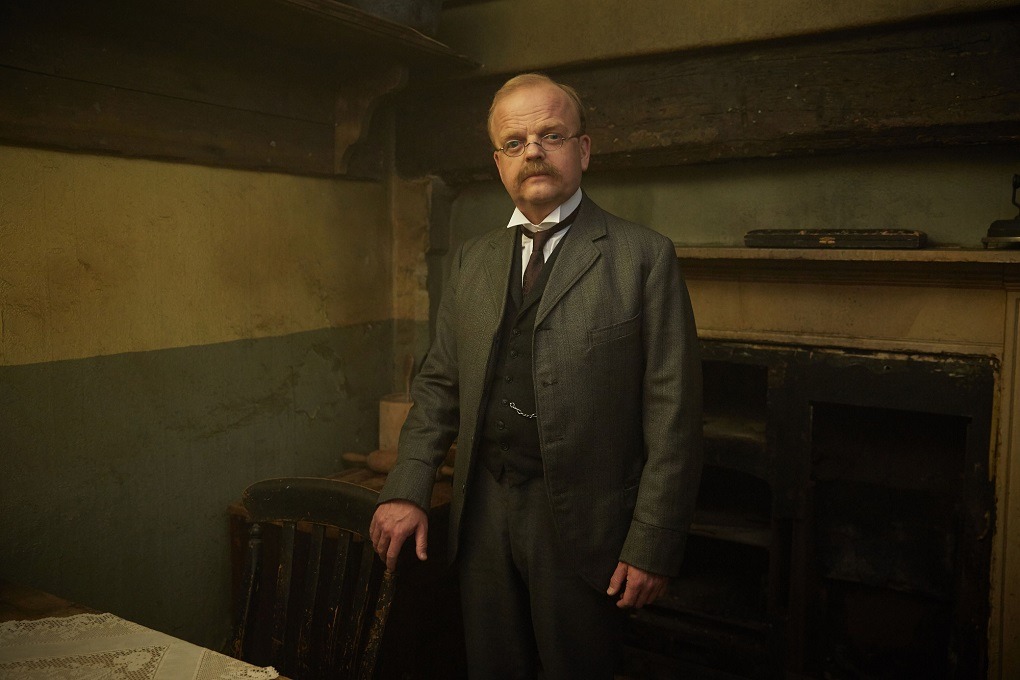
As a morality tale of war, innocence and greed, what is most startling about Phelps’ adaptation is the contemporary relevance that she expertly weaves through the dialogue. This isn’t an out-of-date story on well-trodden ground. It’s an intense and complex exploration of actions, consequences, guilt, blame and justice with far reaching resonance, as relevant today as it was for Christie’s society.
Agatha Christie had a tradition of publishing a new story each festive season for most of her career, which became fondly known as a ‘Christie for Christmas’. With the success of both last and this year’s Christie telling, it looks like the BBC could be encouraged to treat us to a joyous Christie each Christmas. And with quality drama like this, long may it continue.
Did you tune in for The Witness for the Prosecution? Let us know your thoughts in the comments below!
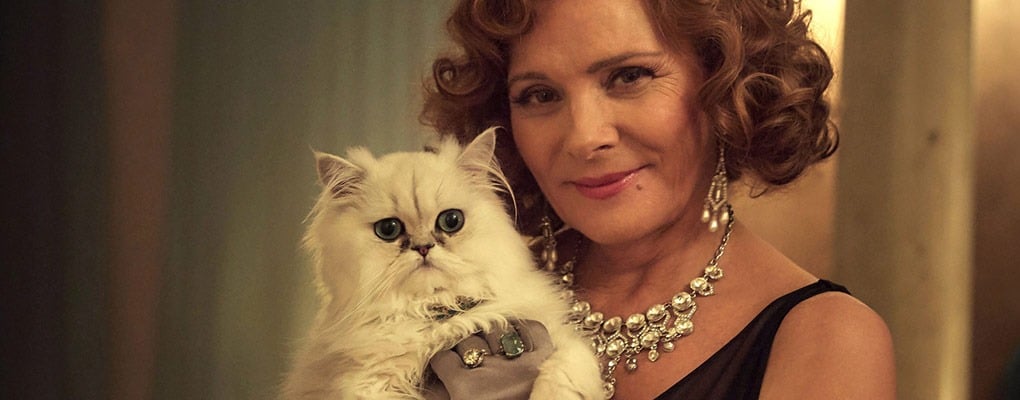


Please note: Moderation is enabled and may delay your comment being posted. There is no need to resubmit your comment. By posting a comment you are agreeing to the website Terms of Use.